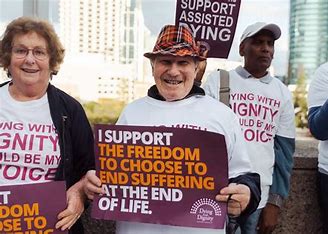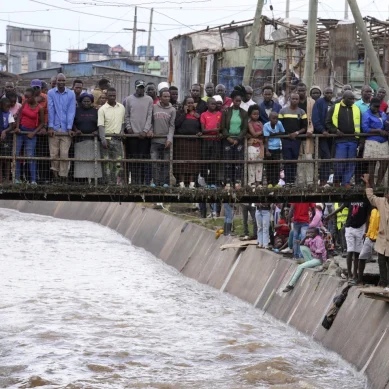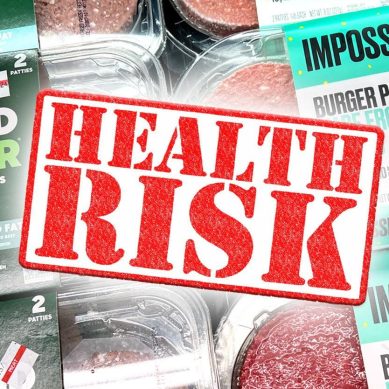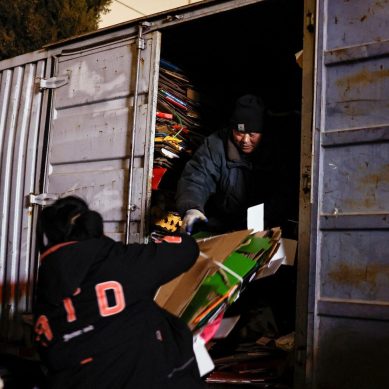
The growing worldwide trend of euthanasia and/or assisted suicide, especially among children and young people, has critics asking troubling questions about the real motivation behind a spate of new laws.
In a recent CHD.TV talk-show Good Morning CHD, three Canadian doctors – Dr Charles Hoffe and Dr Stephen Malthouse and Dr Chris Shaw – discussed Canada’s unprecedented normalisation since 2016 of “medical assistance in dying” (“MAID”) and their government’s possibly imminent endorsement of the practice for “mature minors” who request death without parental knowledge or consent.
Euthanasia “Physician-assisted suicide,” “assisted suicide,” “assisted dying” and euthanasia – each with slightly different legal connotations – all refer to medical interventions to expedite death, with the main distinction being “who performs the final, fatal act.”
Last year, 3.3 per cent of deaths in Canada occurred under MAID, representing “a growth rate of 32.4 per cent over 2020,” and “steady year over year growth” in all provinces, including in the 18- to 45-year age group.
Among the first 100 patients to avail themselves of MAID in the province of Ontario, more than five per cent were younger adults ages 35-54.
In the Netherlands and Belgium, other countries that allow euthanasia, those under age 60 account for 12.5 per cent and 15 per cent of those euthanised, respectively.
What the Canadian doctors were discussing on Good Morning CHD was a consequential 2021 modification to Canada’s original MAID law, eliminating the criterion that previously had made it a requirement for a candidate’s death to be “reasonably foreseeable” – and making decisions about eligibility far more subjective.
Even for those with “reasonably foreseeable” deaths, the bill eliminated a formerly mandated 10-day “reflection period” and downgraded the requirement for independent witnesses from two to one.
The three doctors and other critics of the more expansive policy warn that it will “nurture the country’s growing culture of death” and open the door to even more widespread implementation of a practice that is already ethically contentious, particularly since the Canadian government has pledged to consider eligibility for minors as young as 12 if deemed “capable of making decisions with respect to their health.”
Extending MAID eligibility to youth, which could be on the horizon as soon as 2023, would mean that “before children in Canada can drive vehicles, they may be allowed to consent to physicians taking their lives.”
As Hoffe wryly commented to his two colleagues, “It is amazing the lengths that the government seems to be going to — to reduce the population.”
Legalisation of euthanasia and/or physician-assisted suicide is a growing trend worldwide, exhibiting a “momentum” that “appears unstoppable.”
Not only are more and more nations endorsing a practice that was “prohibited and morally condemned” throughout much of human history, but every country or jurisdiction that allows it is experiencing the same year-over-year growth as Canada.
And when it comes to hastening death for young people, in particular, Canada is not entirely an outlier. Belgium, in 2014, became the first country to legalise lethal injection for children of all ages, having laid the groundwork 12 years earlier with legal euthanasia – explicitly defined as “medical treatment” – for adults and emancipated minors.
In 2016 and 2017, according to the Daily Mail, Belgium’s “radical laws” enabled the putting to death of three children and 19 young adults under age 30. Belgium reported another child euthanasia death in 2019, a year in which the country euthanized a “record number” of people overall.
Also in the vanguard of kiddie euthanasia is the Netherlands, where a 2002 law not only established the practice for adults – with the range of eligible conditions expanded in 2007 – but allowed euthanasia for children ages 12 and up. Parental consent is not required for those 16 or 17 years old.
In the first decade, there were five assisted deaths in Dutch adolescents, including one 12-year-old. Under a “devil’s bargain between medical professionals and prosecutors,” Dutch doctors also can kill certain babies in their first year without fear of prosecution as long as they follow a designated protocol.
In late 2022, a member of the Quebec College of Physicians proposed something similar to the Canadian parliament, suggesting that babies with “severe deformations or very grave and severe syndromes” be candidates for assisted suicide.
Objecting, a horrified bioethicist and physician noted that this would leave too “much room for parental, physician, personal, social and economic bias.”
Given the unwarranted fear-mongering about paediatric Covid-19 – used to justify misleading and ultimately genocidal vaccine mandates for kids – it is noteworthy that during the pandemic years, the Netherlands joined Canada in pointedly escalating its kid-focused euthanasia legislation.
In late 2020, the Dutch Ministry of Health, Welfare and Sport, began taking steps to extend “active termination of life” to children aged 1-12, first stacking the deck with a favourable commissioned report from the Dutch Society of Paediatrics.
Dutch Health Minister Ernst Kuipers renewed the case for under-12 euthanasia in a June 2022 briefing to members of parliament.
Meanwhile, in May 2022, Colombia became the first Latin American country to endorse medically assisted suicide, having made euthanasia legal in 1997. The laws apply to children as young as 6.
Switzerland, where assisted suicide (but not euthanasia) has been legal for seven decades, has played an influential role in normalising the practice for all ages, even attracting lucrative “suicide tourism” in slick designer-furnished clinics due to its willingness to provide death to foreigners.
As long as “patients commit the act themselves and helpers have no vested interest in their death,” there is no specified age limit, prompting The Guardian to observe in 2014, “technically even a healthy young person could use such services.”
According to studies of that time period, 1 in 5 assisted suicides in Switzerland involved adults under the age of 65, including individuals as young as 18.
- A Defender report











